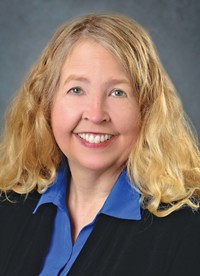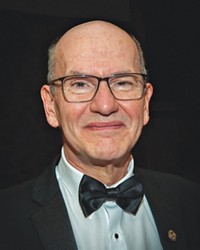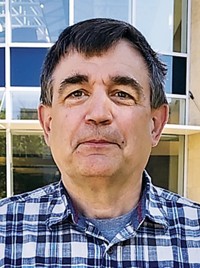Advertisement
Grab your lab coat. Let's get started
Welcome!
Welcome!
Create an account below to get 6 C&EN articles per month, receive newsletters and more - all free.
It seems this is your first time logging in online. Please enter the following information to continue.
As an ACS member you automatically get access to this site. All we need is few more details to create your reading experience.
Not you? Sign in with a different account.
Not you? Sign in with a different account.
ERROR 1
ERROR 1
ERROR 2
ERROR 2
ERROR 2
ERROR 2
ERROR 2
Password and Confirm password must match.
If you have an ACS member number, please enter it here so we can link this account to your membership. (optional)
ERROR 2
ACS values your privacy. By submitting your information, you are gaining access to C&EN and subscribing to our weekly newsletter. We use the information you provide to make your reading experience better, and we will never sell your data to third party members.
Policy
Communicating for Success
by Elsa Reichmanis, Immediate Past-President
December 13, 2004
| A version of this story appeared in
Volume 82, Issue 50
The chemical enterprise is made up of a number of interdependent entities: teaching institutions, research labs, manufacturing plants, government regulators and funders, and professional and trade organizations, to name just a few of the major players. The success of the enterprise is highly dependent upon cooperation among these units. In our global economy, this cooperation among U.S. partners is critical to the health and security of our entire nation, not just our own economic sector.
As a member of the ACS presidential succession, I have focused on the communication that is necessary to keep the American Chemical Society “in the loop” with its enterprise partners. I visited with members of Congress to discuss the critical need for support for long-term research. I visited universities and talked about the need to train the next generation of chemical scientists to participate in teams and to prepare them to work with colleagues from a variety of disciplines.
I also visited with top industry executives to talk about ACS and about the process of innovative technology-focused research and the need to continue to support such research to ensure the future health and well-being of the enterprise. One of my main objectives has been to build stronger ties between ACS and the chemical industry, to establish closer relationships between ACS and our industries at the officer and executive levels, and to learn what ACS can do to support the careers of their employees. I visited with leaders in many areas including biotechnology, pharmaceuticals, and petrochemicals, in addition to the basic chemical industries. Across the board, these leaders share some of the same concerns that occupy ACS members and leaders alike. Among them are the public image of chemistry; government support for long-range research, particularly long-range research leading to innovative technologies; and having an appropriately trained workforce to meet the demands of the ever-evolving research and development paradigm.
To explore the issue of how we might better stimulate and support long-range, technology-focused research, I am proposing an ACS-hosted summit meeting with technology leaders from our industries, government (the White House Office of Science & Technology Policy, the agencies, and the national labs), and the academic institutions early in the new year. The goal would be to develop a shared understanding of the issues we face and to explore possible new paradigms for ensuring appropriate support for future technology-oriented research activities. Working together, we can develop a strategic effort that will maximize the impact of available resources and provide complementary programs.
While continuing a dialogue with industry leaders is a critical mechanism to secure support and encouragement for the participation of their employees in ACS activities and for encouraging corporate support for important society programs such as ACS Scholars and Project SEED, I believe that it is important for a much more urgent reason. As chemists, we are unanimous in our concern about the impact of multidisciplinarity on our members. We are unanimous in our concern about the relevancy of our society. We are unanimous in our concern about the disappearance of the job classification “chemist.” Corporate leaders represent a great resource for us in addressing these concerns. We need them to educate us. We need them to share their visions of the future with us. And we need to work with them as partners in addressing challenges we have in common, challenges we face together.
I hope my ACS presidential legacy will be that I was instrumental in establishing a program of regular, substantive communication between industry leaders and ACS leaders. I offer my support and assistance to continue this effort.
While there is much concern circulating about the future of the society, its electronic publishing activities, and its relevancy to the next generation of chemical practitioners, I am optimistic. Over the past three years, I have met hundreds of enthusiastic, creative ACS members and staff. Their energy is amazing. I have great confidence that our profession and our society will remain relevant. Not only that, chemistry will be valued as the enabling science for many generations to come. We just need to get the word out and open our umbrella to welcome members of the research community with backgrounds different from our own.
Views expressed on this page are those of the author and not necessarily those of the ACS Board.









Join the conversation
Contact the reporter
Submit a Letter to the Editor for publication
Engage with us on Twitter